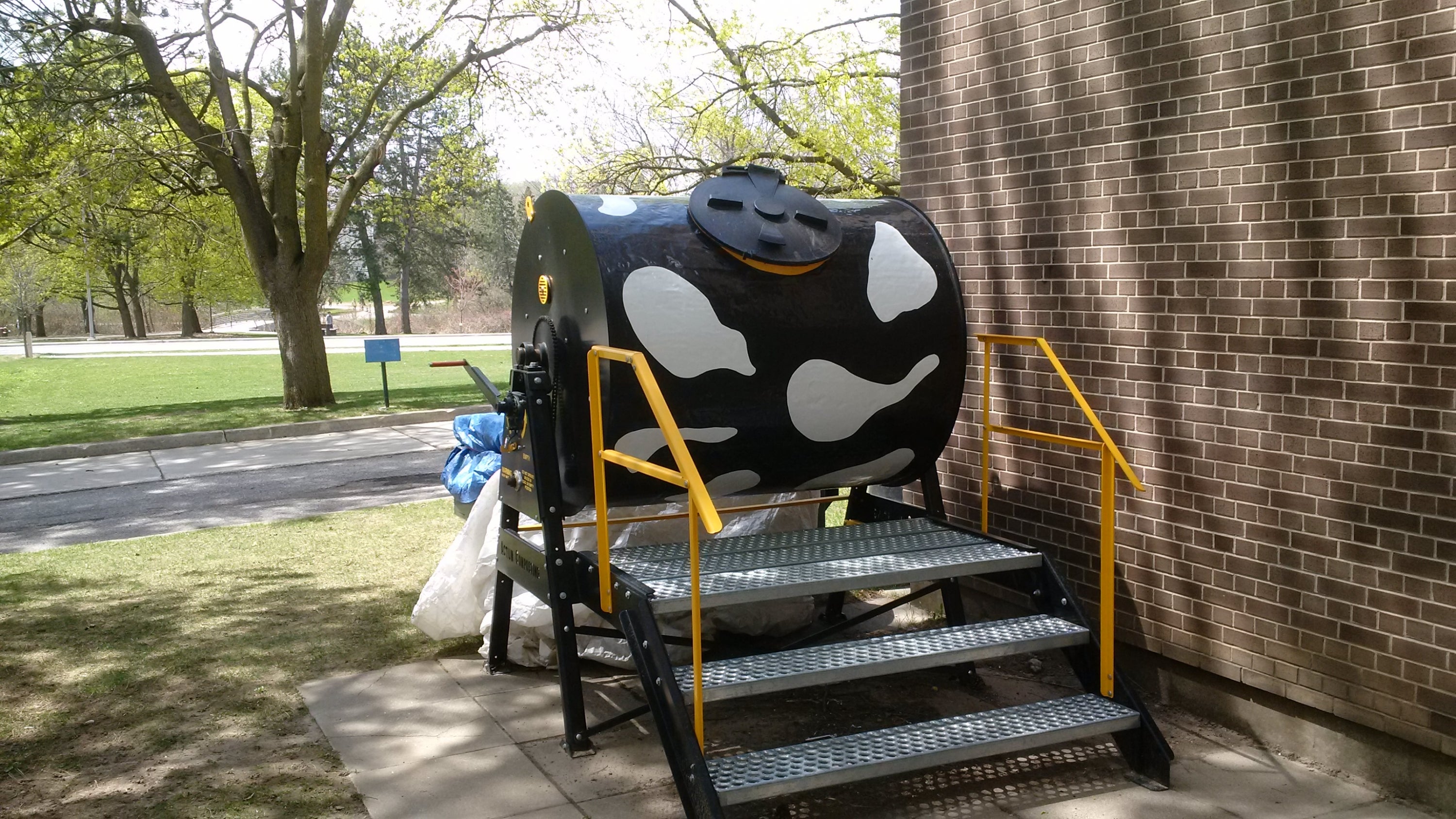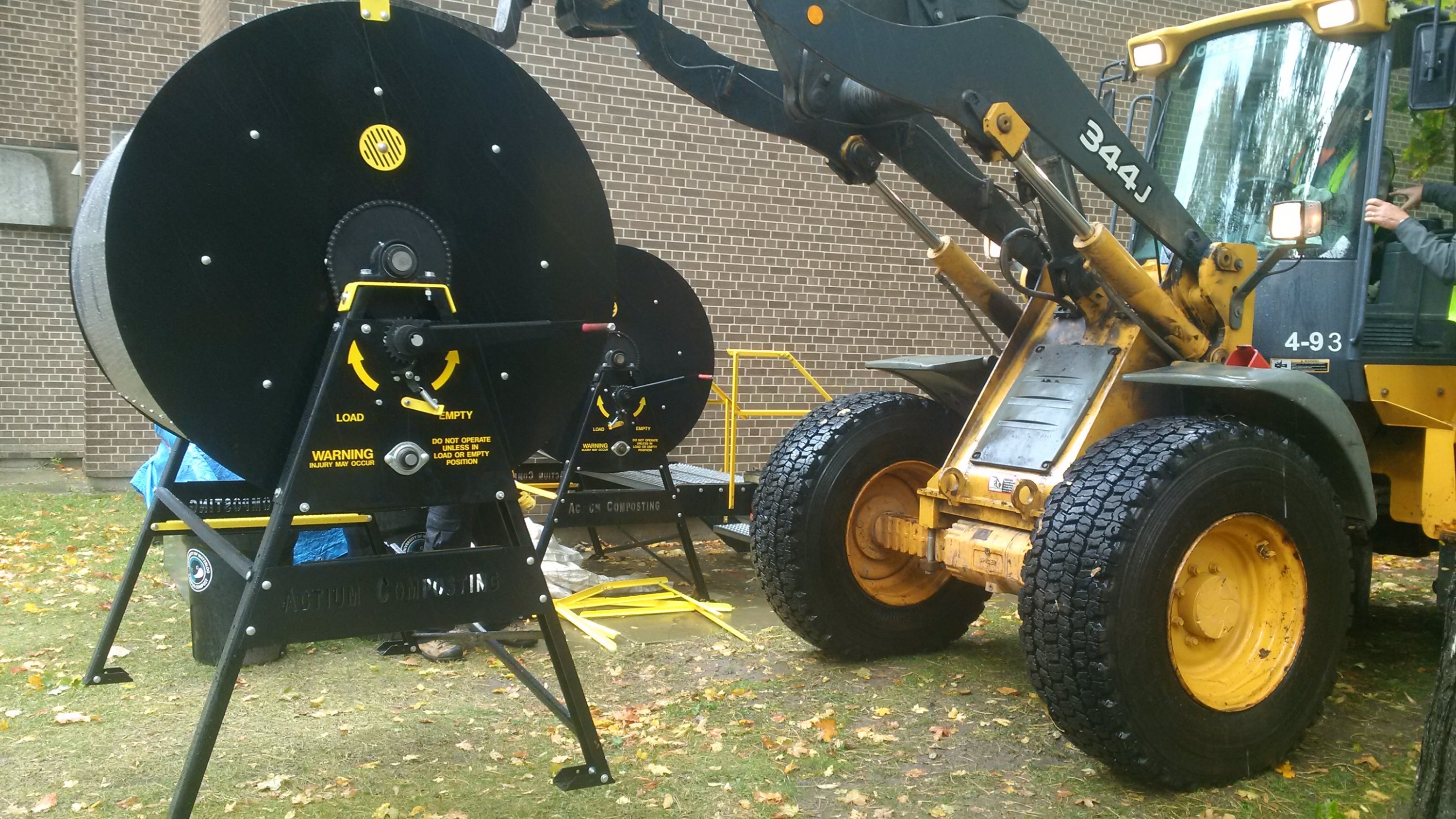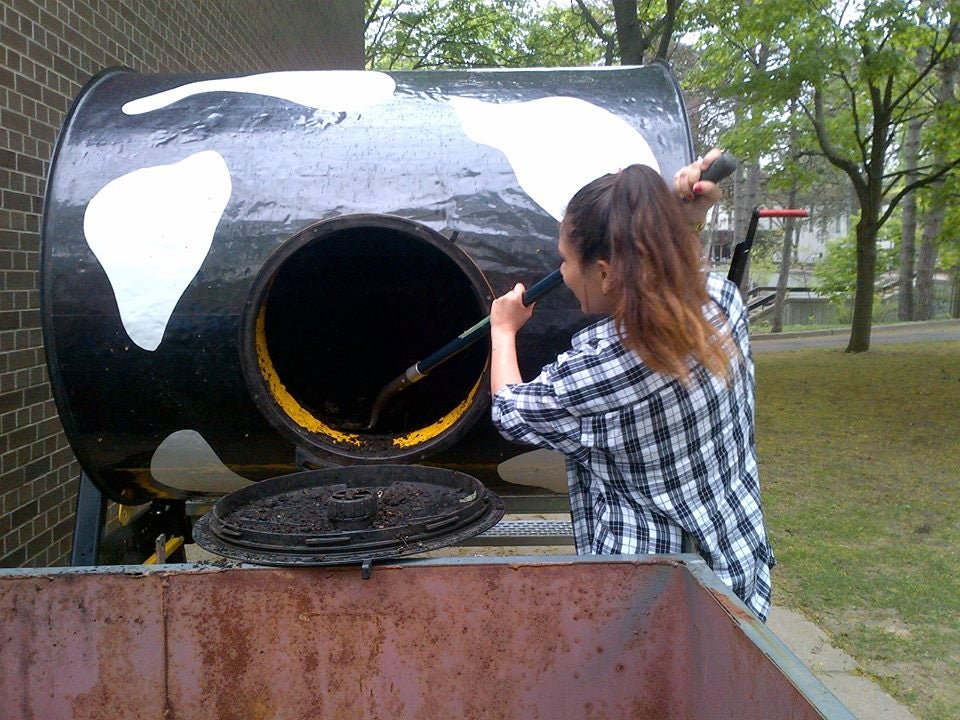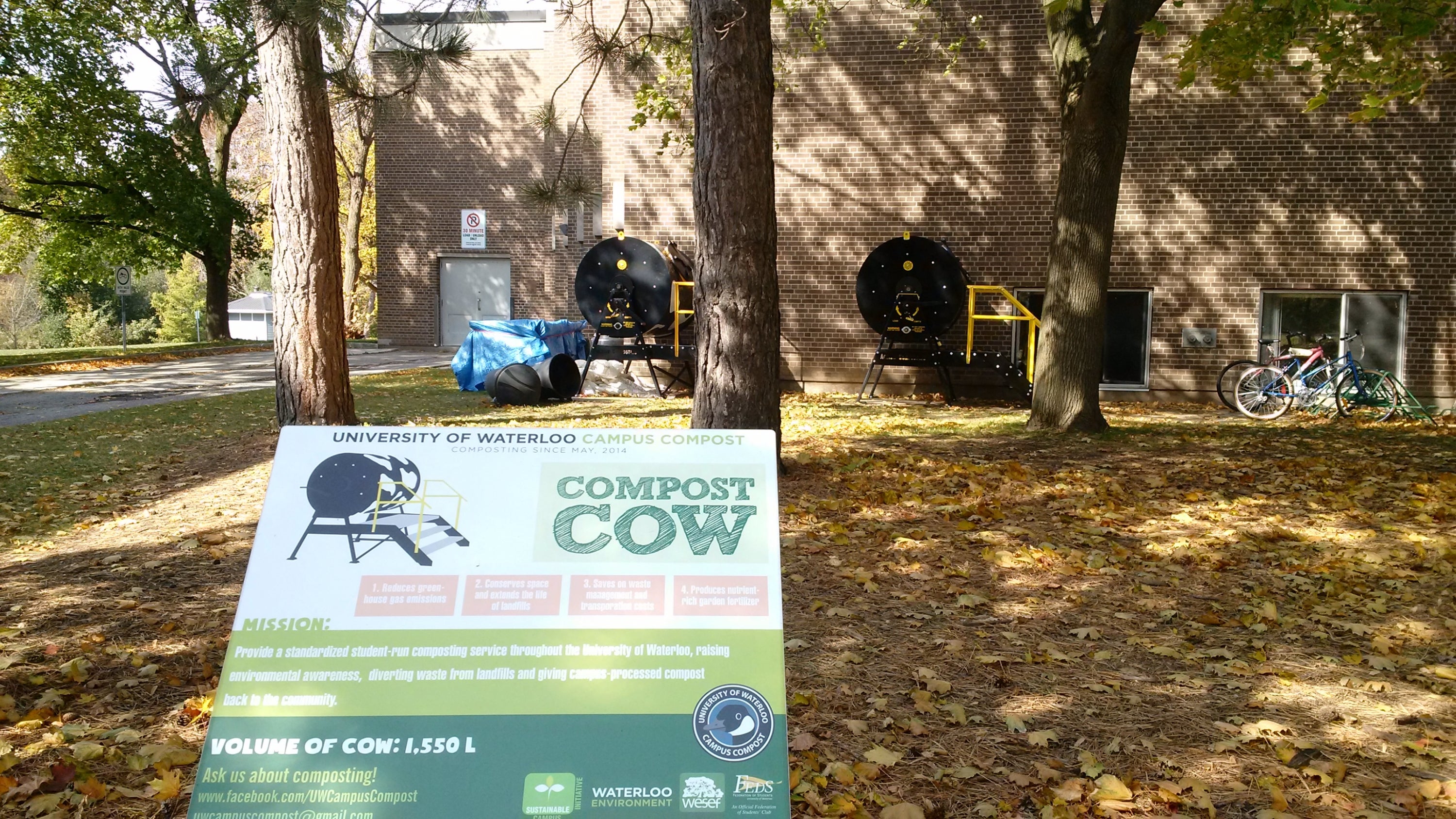Since our formation over the 3 years ago, UW Campus Compost has established the view that composting is both a science and an art -- and messy ones at that. The science is biochemistry and ecology; it's the interaction of external factors and ratios of organic matter; it's the techniques used. The art view considers composting a labour of love -- and one that should be shared with others.
The initiative has sparked conversations among students, faculty and the greater UW community about sustainable waste management, about the broader scope of sustainability, and provision of experiential learning opportunities to all those involved. Both equally important, the science and art of composting have formed a guiding philosophy as we chart our course forward with Campus Compost.
Flashback: Fall 2012.
The idea for UW Campus Compost came from a student working group who identified the need for an organics collecting system, a priority not yet undertaken by the university at the time.
We connected with stakeholders across campus. We did our research, and we looked into existing composting models. What came out of the working group was a vision: an initiative that would be student driven, piloted within the Faculty of Environment and incorporate on-site composting. Processing the organic matter on campus would allow us to give compost and learning opportunities back to the UW community. Our preferred system of choice?
The Compost Cow
With a capacity of 1,550 L, a solid steel hull, and decorative cow spots, the Batch Composter is the real deal for onsite composting. Commonly used at poultry farms, the Cow is capable of composting a batch of compost within a month's time. Come check the system out if you’re around Modern Languages and Environment 3.

Since our launch in Spring 2014, we've diverted approximately 4,000 lbs of compost from landfill and expanded to 7 locations across Environment and Art faculties. Last Fall we welcomed a new addition to the compost team -- the second compost cow. This second composter creates an opportunity to expand and create additional impact. With a hammered-out collection regiment and dedicated collection crew, Campus Compost is working to continually improve our service.

The Ups and Downs
There’s been a lot of success. But this hasn’t been without many challenges.
During the last few winters, our collected organics had frozen. Wetness, improper composition of materials, and extremely cold temperatures led to the slow down and subsequent freezing of the organic matter. There were many attempts to remedy this. We added dry paper shreds, picked away at the heap with a shovel and burned out a space heater in an attempt to thaw out the compost. Indeed, a lot was learned from these experiences. Composting is a science, and special attention must be taken to get it right.

Contamination has been another challenge. Over the course of the project, we've dug out items such as cans, plastic bags, water bottles and styrofoam containers. This leads into the importance of our marketing efforts. Perhaps we need to improve signage, public outreach or various other communication strategies to teach others proper sorting. Improving public behaviour is no easy task, but it’s one we can all take part in. Educate others and we all benefit!
Where next?
We plan to help build the sustainable waste management infrastructure on Campus. In part, we hope to expand beyond our current collection system, bringing more compost bins to the students, staff and faculty of UW. We will work with Sustainable Campus Initiative, the Sustainability Office and our many important stakeholders to keep things moving.
UW Campus Compost is an organization driven to diverting organics from landfill and inspiring others to learn and take action. As part of the sustainability community both on and off campus, we’re always looking for new people with great ideas. Come join and experience the science and art of composting for yourself.
